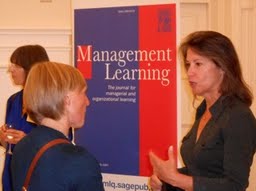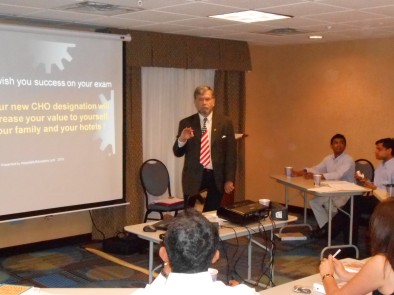“My greatest strength as a consultant is to be ignorant and ask a few questions”
Peter F. Drucker, (1909- 2005) American Educator and Author
While Peter Drucker was not specifically a hospitality consultant, his contributions to both the “people and the process “components of business consulting are enormous and lasting, as evidenced by his significant works and books.
In a column I wrote several years ago, I shared a number of observations I made while I was conducting a multi-city series of programs on optimizing meetings success for Meetings Quest , when it was owned and managed by co-founder Barbara Cox-Dunn. http://www.meetingsquest.com/ . Today it is owned and managed by Schneider Publishing
The observations I shared were about the stimulating and interactive discussions held on ways to optimize meeting success from various perspectives of professional meeting planners and hotels. Almost 50% of the time for the program was committed to small group discussions on problems facing all of these professionals in the same industry, but that have slightly different roles and responsibilities. Attendees comprise professional meeting planners from corporations and associations of every size, hotel managers and sales teams, representatives from convention and visitors’ bureaus, suppliers that serve all of the previous groups and independent professionals in the hospitality business.
I wrote the column, titled “5 Reasons Using A Qualified Consultant Could Make a Huge Difference in Your Hospitality Business” because there was such extensive cross-fertilizing of ideas and solutions among participants in the discussions mentioned above.
I also received a number of emails on the column, including this one: “ Having been both an exec using advice from consultants and now a consultant myself, I can only fully subscribe John Hogan’s comments and five reasons for a (good and qualified) consultant. I would like to add a sixth reason: The consultant is not emotionally involved and can thus provide very objective reasoning for a specific business situation. John F. Edmaier CMM.”
Comments from other readers and attendees at the above-mentioned sessions generally complimented the potential value of consultants, but there was also caution sheared that consultants could also be a source of negativity if not used properly and effectively, as evidenced in this tongue in cheek “motivational message” from http://www.despair.com.

.
This message paints the negative image of consulting, as that of people who “hang around until” it may be too late. When a project nears completion, new troubles seem to inexplicably appear. Those challenges could be in staffing, communication, technology, equipment or distribution of global reservations. Each challenge extends the consultant’s assignment and before you know it, the financial and time costs for the consultant’s services affect your income statement in an unexpected way.
To avoid this danger, I offer the following : Five Considerations in Hiring a Hospitality Consultant.
I don’t believe in just ordering people to do things. You have to sort of grab an oar and row with them.” Harold S. Geneen, American Executive and CEO (1959-1977) of ITT, then parent company of Sheraton Hotels
I was a management trainee at the 1500 room Sheraton Boston Hotel near the end of Geneen’s affiliation with Sheraton. He was known as a taskmaster, but he also had the reputation for involvement with identifying problems and solutions.
1. Involve key staff. Staff buy in is critical when deciding to engage the services of a consultant The danger of failure grows enormously unless key associates are involved in the decision making process of hiring a consultant. I have seen organizations that did not take this proactive approach, and the resentment or negativity can torpedo the project before it really begins.
2. Set specific and clear expectations. Responding to RFPs and making effective presentations is one thing, but those proposals may not include measurable outcomes or results. Expectations should have clear and defined deliverables, including time and expense details.
3. Establish Accountability for each phase of a consultant’s time and interaction. Consultants may research, discuss and seek to get buy-in on solutions, but they cannot execute the final plan for an organization. It is therefore essential to identify those steps and actions the consultant is responsible and accountable for.
4. Define levels of authority. A consultant according to Drucker’s quote is one who asks questions and then shares counsel. Hospitality businesses, hotels and restaurants can receive exceptional counsel from consultants, but one should not allow them to run your hospitality business unless that was part of the expectations and accountability mentioned above. They probably do not know your hospitality business as well as or better than you do. They may have recommendations that can help you and your team, but senior management and/or ownership should stay involved in the process if you retain a consultant.
5. Match your needs with the specific consultant for your assignment. By this, I mean to be certain you retain the correct individual, as well as company (if applicable). Someone with exceptional credentials as a chef may not be able to design your dining room layout. Success as a sales manager in select markets may not translate into global marketing planning. Running accounting department receivables does not mean the same thing as effectively managing cash flow in tough economic times. If applicable, you might ask questions such as:
- What were the largest revenues they personally oversaw?
- how many people were on their staff?
- What was the turnover rate?
- Were they ever entrepreneurs who had to meet their own payroll?
- Did they ever have to pay their own business and property taxes, or did they rely on others?
- Other questions unique to your situation
There are advantages to both specialists and generalists in consultants, attorneys, doctors and other professionals. We are probably familiar with the expression to “walk the talk”. For purposes of this discussion, this means having personally handled similar challenges facing your hospitality business. My personal experience in retaining or serving as a consultant is to understand and match situations on a case by case situation.
Most consultants have some hospitality industry background but may have never owned their own business. They may have never owned or sold their own hospitality business prior to becoming consultants and do not understand the stress and pressures of operating a family owned business, as are so many hospitality businesses.
Consultants can be excellent resources. Use them effectively, by choosing wisely.
Keys to Success Hospitality Tip of the Week: Focus on Continuous Learning
Hotel Common Sense Philosophy #11 “DARE TO FAIL!”
John J. Hogan, CHA CHE CMHS CHO
part of the 15 Timeless Philosophies In Hospitality, A Keynote Address and Workshop
KEYS TO SUCCESS is the umbrella title for my current programs, hospitality services and columns. This year’s writings will focus on a wide variety of topics for hotel owners, managers and professionals including both my “HOW TO” articles and HOSPITALITY CONVERSATIONS. My segments Lessons from the Field, Hotel Common Sense and Principles for Success will be featured at appropriate times in the year as well.
Success does not come by accident or chance.
Contact us for assistance.
 John J. Hogan CHA CHE CHO and Kathleen Hogan MBA CHO are the co-founders of HospitalityEducators.com, which was created in 2010 to be a resource for hotel owners and professionals as they sought to improve market share, occupancy, operational efficiency and profitability.
John J. Hogan CHA CHE CHO and Kathleen Hogan MBA CHO are the co-founders of HospitalityEducators.com, which was created in 2010 to be a resource for hotel owners and professionals as they sought to improve market share, occupancy, operational efficiency and profitability.
The husband and wife team are transitioning the original membership site concept and evolving the business model today to a focused resource offering consulting, training, and individualized support to both hospitality and other service businesses. Services include keynote addresses workshops, online support, metrics measurement, marketing and customer service from a group of more than a dozen experienced professionals. While continuing to serve hospitality, the demand for these types of services is growing and can be personalized.
John Hogan is also the principal of HoganHospitality.com, which provides a range of expert professional services for hotel owners, including professional development for organizations, training, consulting and expert witness services.

Contact information: Kathleen Hogan ![]() 480-436-0283,
480-436-0283,
John Hogan
602-799-5375 or service@hospitalityeducators.com
Workshops Available include:
From the Chalkboard to the Front Line
What They Don’t Teach You at Hotel School
Focus:
- Hotel Profitability
- Hotel Sales
- Marketing Ideas
- Hotel Operations
There will always be an ongoing debate on the comparative merits of experience versus the knowledge acquired in formal educational settings. The best lessons anyone can learn from hotel schools include an awareness of what really occurs on the front line in the actual hospitality setting. This keynote transitions the academic message to the real world of running a profitable hospitality business.
Click here for Keynotes and Workshops Available
http://www.HoganHospitality.com
Your Hospitality Resource for Hotel Owners, Innkeepers, Managers and Associations
Pete Drucker Books
Prepared by the Office of Marketing & Communications at Claremont Graduate University 165 E. Tenth St., Claremont, Calif. 91711 909-621-8028
The End of Economic Man – 1939
The Future of Industrial Man – 1942
Concept of the Corporation – 1946
The New Society – 1950
The Practice of Management – 1954
America’s Next Twenty Years – 1957
Landmarks of Tomorrow – 1957
Managing for Results – 1964
The Effective Executive – 1966
The Age of Discontinuity – 1968
Technology, Management and Society – 1970
Men, Ideas and Politics – 1971Management: Tasks, Responsibilities, Practices – 1973
The Unseen Revolution – 1976 (reissued in 1996 as The Pension Fund Revolution)
People and Performance: The Best of Peter Drucker on Management – 1977
An Introductory View of Management – 1977
Adventures of a Bystander – 1978 (autobiography)
Song of the Brush: Japanese Painting from the Sanso Collection – 1979
Managing in Turbulent Times – 1980
Toward the Next Economics and Other Essays – 1981
The Changing World of the Executive – 1982
The Last of All Possible Worlds – 1982 (novel)
The Temptation to Do Good – 1984 (novel)
Innovation and Entrepreneurship – 1985
Frontiers of Management – 1986
The New Realities: in Government and Politics, in Economics and Business, in Society and World View – 1989
Managing the Nonprofit Organization: Principles and Practices – 1990
Managing for the Future – 1992
The Ecological Vision – 1993Post-Capitalist Society – 1993
Managing in a Time of Great Change – 1995
Drucker on Asia: A Dialogue between Peter Drucker and Isao Nakauchi –1997
Peter Drucker on the Profession of Management – 1998
Management Challenges for the 21st Century – 1999
The Essential Drucker – 2001
Managing in the Next Society – 2002
A Functioning Society – 2002
The Daily Drucker – 2004
The Effective Executive In Action – 2006



